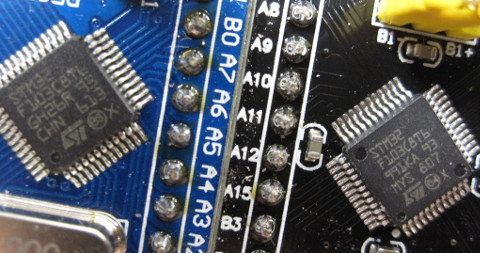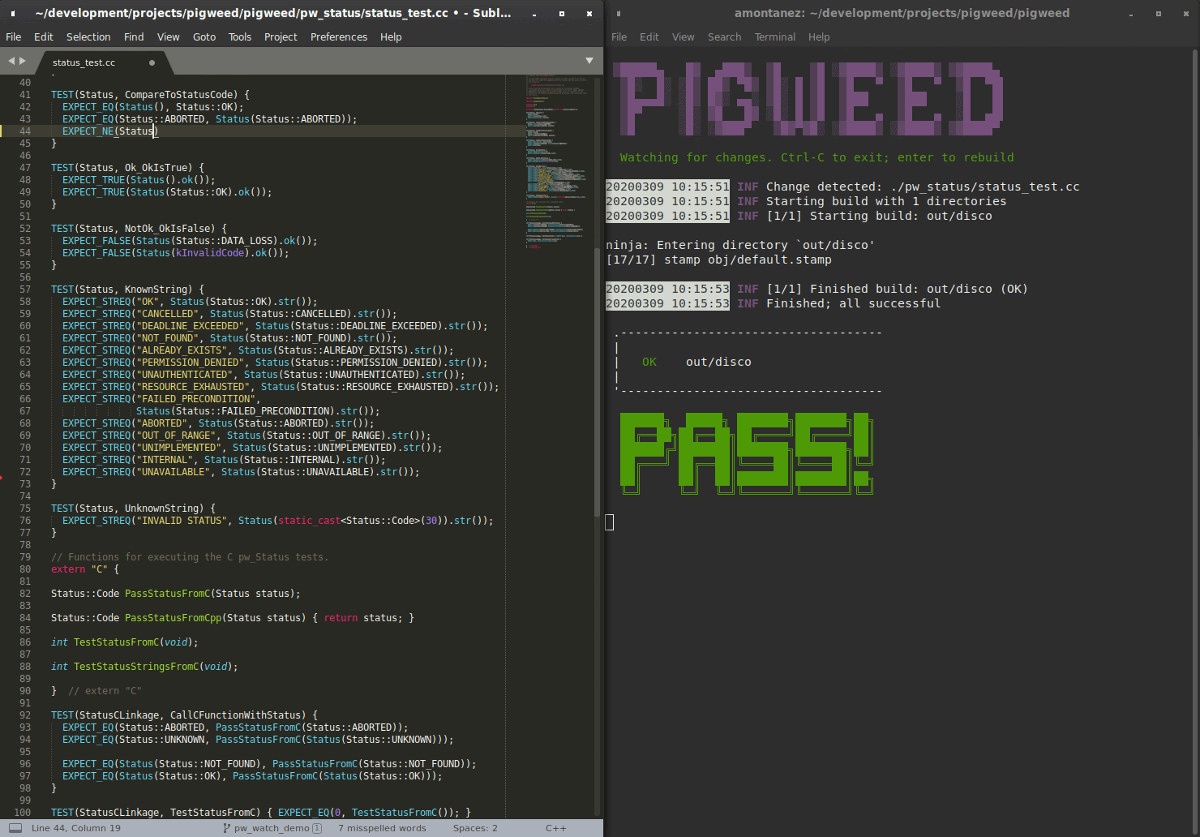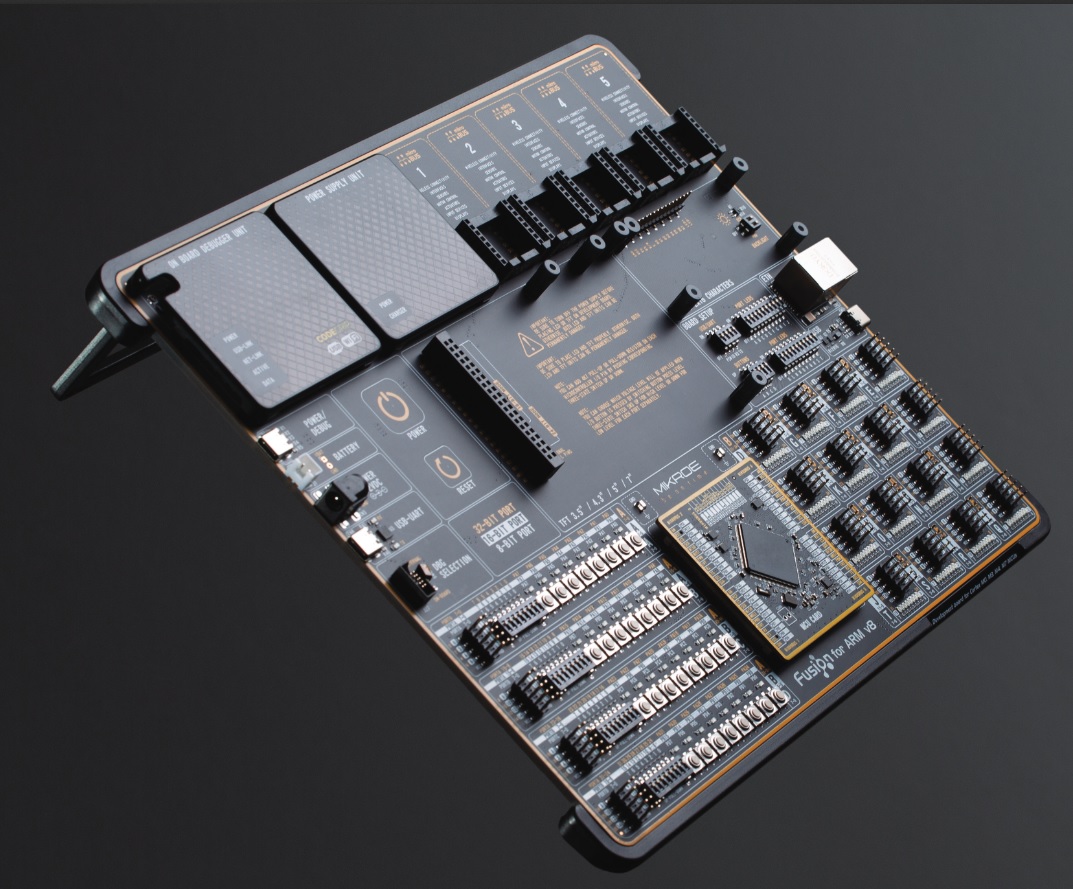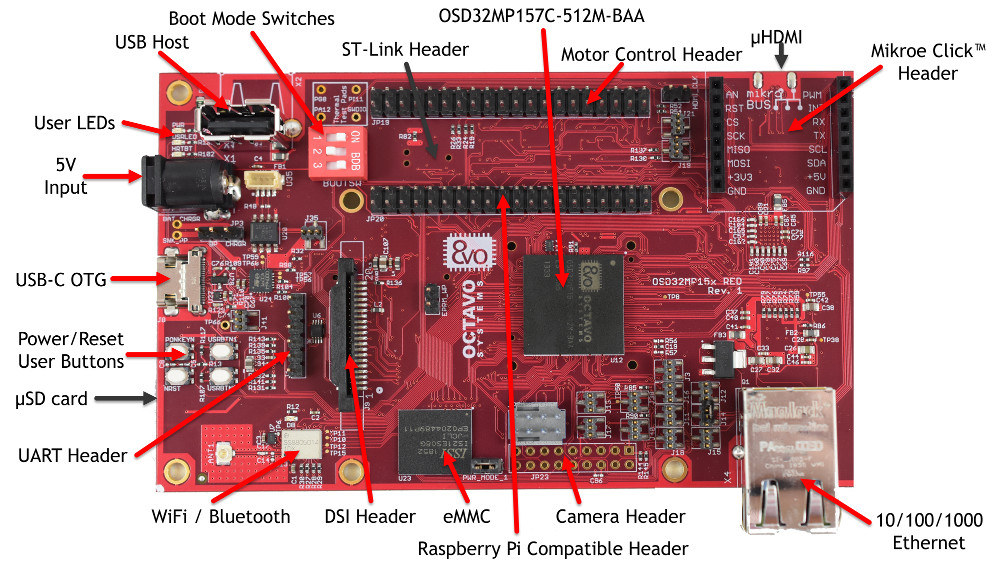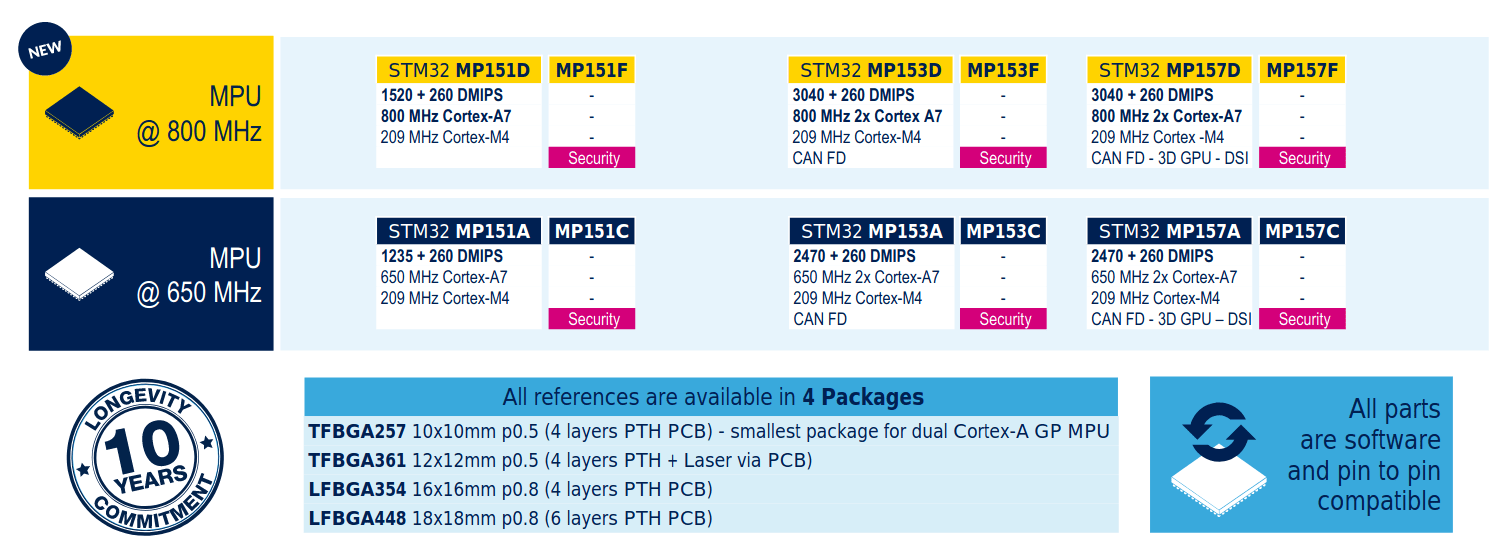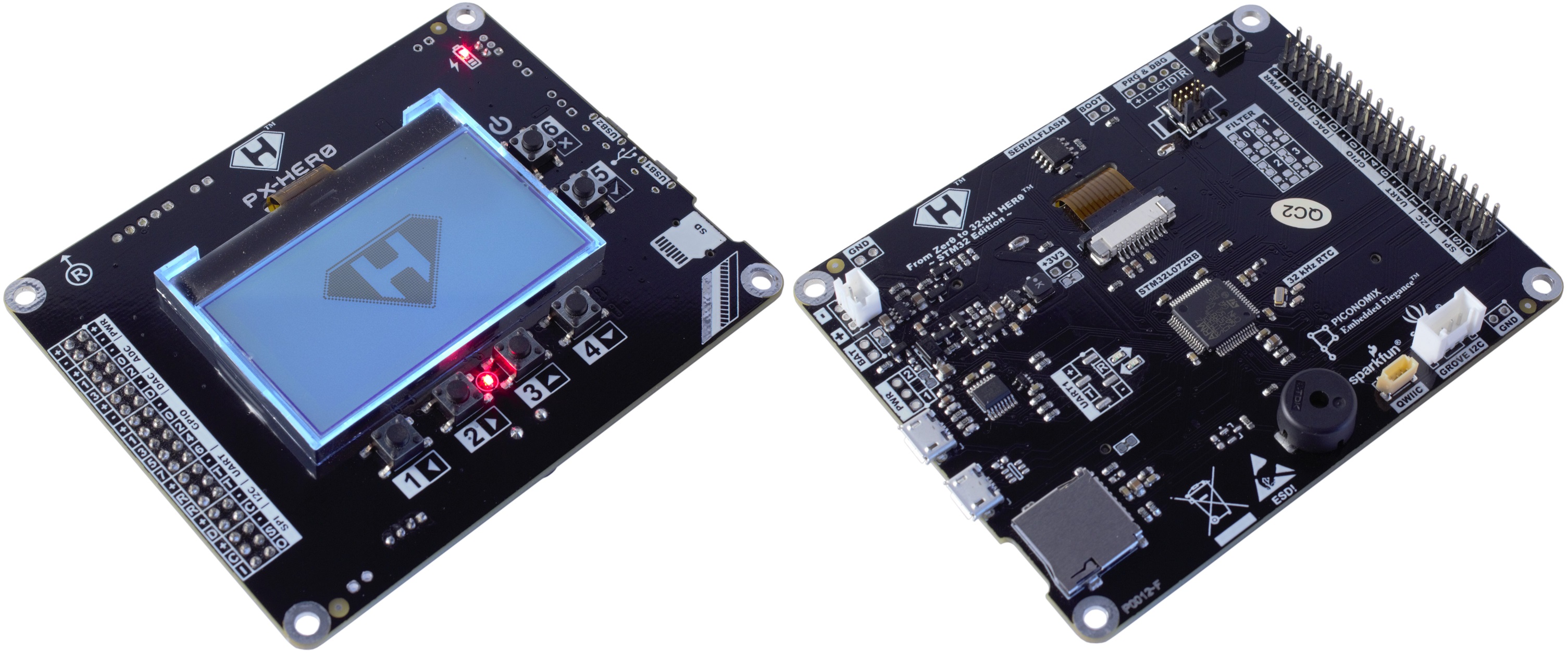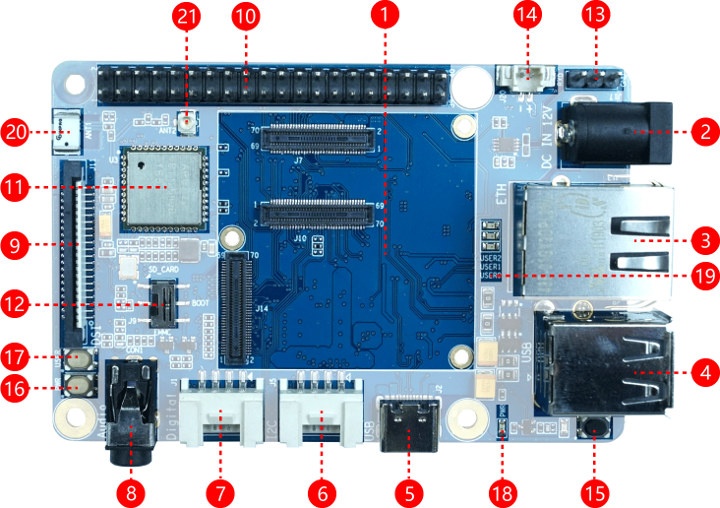STMicro STM32 microcontrollers are very popular, and it’s a well-known fact there are some fakes on the market. What I did not know is that many don’t even pass the blinky test. I learned this in Greaseweazle Github repository, a “tools and USB interface for accessing a floppy drive at the raw flux level”, where keirf explains how to detect STM32 fakes, notable clones of STM32F103C8 found in Bluepill board. The photo above shows a real STM32F103C8T6 microcontroller, and all should have a similar top marking and only one circular depression on the bottom left to indicate pin 1. [Update July 9, 2023: STMicro has issued PCN MDG/22/13318 in November 2022 that changes the way chips are marked, so it’s no longer true that genuine chips from STMicro must look like the one above. Thanks to George for the update] keirf goes on to show two boards that are sold […]
Google Pigweed Libraries Streamline Embedded Software Development on 32-bit Microcontrollers
There are many components required for embedded software development, including cross-toolchain, a build system like buildroot or YoCto Project, and debugging tools like OpenOCD. Once you’ve installed those, development involving several steps including building the code, flashing it to the board, and then running the program on the target. Google would like to make embedded software development to be as easy as web development as possible, similar to editing a file and running it in a web browser, so they’ve just released Pigweed open-source collection of embedded-targeted libraries/modules to streamline the development process for 32-bit microcontrollers such as STMicro STM32L452 or Nordic Semi nRF52832. Pigweed aims to help all steps of the process including tools/environment setup, program development, and code submission. Setup consists of running a bootstrap script that will automatically install tools such as Python 3.8, clang-format, and an Arm compiler in a virtual environment in order to leave […]
Arrow Embedded To Go Free Online Conference, and 3,000 Development Boards Giveaway
With the coronavirus outbreak on-going, many events are either canceled or moving online. Arrow Electronics has now announced what appears to be a completely new online event. Embedded To Go virtual technology exhibition for embedded systems will take place on April 1-3, 2020, and offer technical presentations, information on newly launched technology, and access to Arrow’s sales and engineering teams. The event will entirely free to attend, and you can register online today with a company’s email address. The event will start in about 10 days by so far the virtual “booth map”, “supplier guide” and “lecture area” are inaccessible. We only know what the event should consist of thanks to an article on EENew Embedded: Technical presentation webinars will be hosted by leading suppliers covering AI, IoT and Edge computing, precision measurement, high-performance computing, intelligent condition-based monitoring, and other technological subjects. Information will also be available in the form […]
MikroElektronika Launches Fusion for ARM & EasyPic MCU Development Boards
During Embedded World 2020 (EW2020), some companies withdrew their presence, while some were at the event. MikroElektronika presented several new boards and among them Fusion for ARM v8 and EasyPic v8 development boards. While we already wrote about Fusion fo TIVA, we haven’t covered any EasyPic board yet. Development boards from MikroElektronika allow rapid prototyping in the most efficient and effortless way. Fusion for ARM v8 Fusion for ARM v8 belongs to the Fusion family of development boards. It has integrated the world’s first embedded debugger/programmer over WiFi, while the CODEGRIP WiFi license is available as an add-on feature. The board is designed to be used in almost every environment retaining full debugging and programming access. The CODEGRIP currently supports more than 1600 microcontrollers from different vendors. The Fusion board integrates a new MCU card standard. It is a low profile standard where sockets consist of two connectors (male/female) which […]
Octavo Systems Announces Development Boards based on OSD32MP1 System-in-Package (SiP)
Announced in February 2019, STM32MP1 Cortex-A7/M4 processor family recently got an update with 24 new SKU’s boosting the Cortex A7 core frequency to 800 MHz instead of just 650 MHz for the SoC’s announced last year. One of the first companies to take advantage of the new parts will be Octavo Sytems that unveiled OSD32MP1 system-in-package (SiP) last year combining STM32MP15x MPU, up to 1GB RAM, 4K EEPROM, STPMIC1 power management IC, two oscillators, and over 100 passive components into a single chip. The company also introduced two upcoming development kits for the STM32MP1 based SiP: OSD32MP1-BRK “Flexible Prototyping Platform” and the more featured OSD32MP1-RED evaluation & development board. Both boards are supported by OpenSTLinux which we covered in our previous articles about STM32MP1. OSD32MP1-BRK Breakout board for OSD32MP1 SiP The first board aims to provide easy access to the I/O of the STM32MP1 processor via breadboard compatible headers, and […]
STMicro Updates STM32MP1 Family with 800 MHz Cortex-A7 Processors
Until last year, all STM32 microcontrollers were based on Arm Cortex-M “MCU” cores, but that changed with the introduction of STM32MP1 Cortex-A7 + Cortex-M4 processor a year ago. That meant for the first time, we had an STM32 processor with an MMU capable of running Linux or Android. The company had three product lines: STM32MP157 – Dual Cortex-A7 cores @ 650 MHz, Cortex-M4 core @ 209 MHz, 3D GPU, DSI display interface and CAN FD STM32MP153 – Dual Cortex-A7 cores @ 650 MHz, Cortex-M4 core @ 209 MHz and CAN FD STM32MP151 – Single Cortex-A7 core @ 650 MHz, Cortex-M4 core @ 209 MHz All available in four different packages, and with or without hardware security (parts with A and C suffix) meaning we had a total of 24 parts. STMicro has now announced 24 more parts whose main and only difference compared to the STM32MP1 processors launched last year […]
PX-HER0 ARM Cortex-M0 Development Board and Ecosystem is for Beginners and Veterans (Crowdfunding)
PX-HER0 ARM Cortex Development Board and Ecosystem Piconomix is offering an embedded Arm Cortex-M0 development board that is aimed at the education, beginner maker, and enthusiast crowd. The PX-HER0 is a development board with an ecosystem of sourcing materials for learning the entire ARM structure through an open-source C library and full documentation. The Basics of the Board The PX-HER0 is a low-power board, running an STM32 MCU with an Arm Cortex-M0 core. There is an LCD Display, that is viewable even in direct sunlight, and the entire package is lightweight and very functional. Mass Storage To activate the bootloader, a double-tap of the RESET button, and the mass storage drive HERO-BOOT appears in the host computer. Drag and Drop are active and the UF2 file can be dragged right to the drive. The Ecosystem The ecosystem for the PX-HER0 is backed by an extensive C Library and documentation […]
ODYSSEY-STM32MP157C SBC Feature STMicro STM32MP157C Cortex-A7/M4 SoC
Seeed Studio has been working on a single board computer powered by STMicro STM32MP157C Arm Cortex-A7/M4 microprocessor, comprised of the Raspberry Pi inspired NPi-STM32MP157C baseboard, and SoM-STM32MP157C system-on-module. SoM-STM32MP157C SoM Module specifications: MPU (1) – STMicro STM32MP157C dual-core Arm Cortex-A7 processor @ 650 MHz, and Arm Cortex-M4F MCU System Memory (2) – 512MB DDR3 RAM Storage (4) – 4GB eMMC flash Host Connectors – 3x 70-pin board-to-board connectors with HDMI, USB, Gigabit Ethernet, audio GPIOs, etc… Misc – Power and USER LEDs PMU (3) – STPMIC1A power management IC Dimensions – 38mm x 38mm The module is said to targets consumer and industrial applications, white goods, medical equipment, and wearable devices. NPi-STM32MP157C baseboard Key features and specifications: SoM Support – Compatible with SOM-STM32MP157C described above Storage – MicroSD card slot Display I/F – 1x MIPI DSI interface Audio – 3.5mm audio jack, WM8960 audio codec Camera I/F – 1x […]


